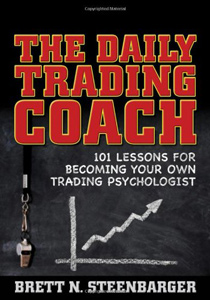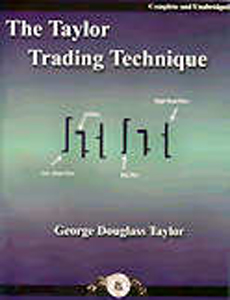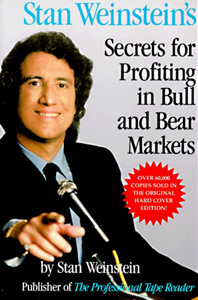Risk Management
Every time you initiate a trade you start a new game in which you assume all risks for playing the game. By choosing to be an active share trader (or forex or CFD trader) you are seeking risk for a larger return on your cash. One of the most important elements of your trading game is managing risk. Smart traders are always on the lookout to reduce their trading risk and watching the risk currently in play on their trades.
You must be dreaming! Trading is inherently full of risks. There is no such thing as risk free trading. Or is there? If you start paper trading, or using a trading simulator you are effectively trading without risk. If you decide to go down that route remember to keep a trading journal to record your feelings and decisions. Trading on paper is not the same as trading with money on the line - even if you risk relatively small amounts of money.
What the Turtle Trader trading book does is question the age old debate between nature versus nurture. Do genetics and people’s innate qualities predetermine someone’s success in the markets? Or is it someone’s personal experiences from learning, interaction with peers and direct personal practice with trading the markets determine success?
I was asked recently about what they should do when you are trading and come up with a major loser of a trade. A major losing trade is a trade which you just let go to run its course. It is no longer part of your trading portfolio but has migrated into your investment portfolio by default. Instead of cutting your losses short as every trader should do, by calculating the exact stop loss level to exit at, you held on with hopes that the price will reverse and start heading the direction you wanted it to go to.
So how do you implement your trading money management with two percent risk management strategy? In this post we will be examining two percent trading mechanics, how you use the rule and some clarifications about the rule. We will extend the rule to cover sensible stop loss levels.
Two percent money management is very important especially when you are daytrading and actively trading the markets. Lets take a look at a tale of two traders with this table. You must apply the two percent rule with due diligence: that’s two percent or die. Examine the case study table below:
Here is an article about a gambling addict who lost $30 million and is suing the casino for it. Imagine if you, the trader, can sue the house – the stockmarket for any huge losses. There'd be no markets since losers would continually sue the markets. Trading may be gambling but any losses incurred are totally your responsibility.
Good trading is not enough to succeed in the markets. The secret to successful trading is in great money management. The skill of money management is required because the real business of trading is making money with money through controlling risk. And an integral part of great money management is a great risk management strategy. The heart of that strategy is the magic 2 percent. So why two percent?
Jerome Kerviel. Rogue Trader. As this case unfolds, more and more information is being revealed. He was the quiet guy with a not-so-impressive education background. Many of his peers may have been picked from the prestigious Grandes Ecoles, the Harvards and M.I.T.'s of France, and wielded advanced degrees in math or engineering. Kerviel came to work with a business school background and started work in the bank in the back office. Can we learn a valuable lesson from this case?
A short case study on trading risk and leverage using forex trading as an example:
- How to Trade Forex and Gold Options
- How to Trade the Gold Price and Profit!
- Forex Trading the EUR/USD Pair € EURO and $ US Dollar
- How to Trade Stock Market Indices S&P500
- How to Trade Crude Oil
- Forex Trading Psychology
- What Are Broker Recommendations?
- Free Tickets to Trading & Investing Seminar & Expo ($18) Brisbane 2013
- Stock Calc App
- All About Warrants
- Introduction to Exchange Traded Funds
- Introduction to Exchange Traded Funds: Features
- Introduction to Exchange Traded Funds: Domestic ETFs
- Introduction to Exchange Traded Funds: International ETFs
- Exchange Traded Commodities
- Australian Stock Scan
- Australian Online Share Trading
- List of Trading Books
- Interesting Thoughts about the Australian Dollar
- What's the Meaning of Hawkish?
- Do You Know How To Use the P/E Ratio
- Trading, Religion and Politics - Do They Have Anything in Common?
- Shares that are Volatile that Double and Half in the Short Term
- Telstra (TLS) T3
- Margin Call by E-mail
- The Cost of Holding a Position
- Lack of Disclosure: Compensation from ASX Listed Company
- Unrealistic Returns and Benchmarks
- CMC Markets Down
- Quality versus Quantity Forex Trading
- Woolworths 1H Sales $30.7bn up 3.2%
Date added 31-01-2013 - ASIC Fines CommBank's CommSec
Date added 25-09-2012 - Industry Super Network Calls to Ban High Frequency Trading (HFT)
Date added 22-09-2012 - NAB Launches Online Share Trading Platform
Date added 19-09-2012 - Reserve Bank of Australia Says 23 Countries Holding AUD
Date added 18-09-2012 - Australia Post Digital Mailbox
Date added 10-09-2012 - Winners and Losers of Trading for Week 2
Date added 16-01-2012 - 2012's First Week of the Best and Worst Traded Stocks
Date added 09-01-2012 - 2011's Last Best and Worst Traded Stocks
Date added 05-01-2012 - Best and Worst Pre-Christmas Traded Stocks
Date added 30-12-2011 - Trading Winners and Losers for Dec. 12-16
Date added 19-12-2011 - Best and Worst Traded Stocks for Dec. 5-9
Date added 13-12-2011 - Top 3 Best and Worst Traded Stocks
Date added 05-12-2011 - ASX Glitch Trading Halt
Date added 27-10-2011 - Worst Trade Stocks (and the Best)
Date added 06-08-2011
Top 150 Public Companies Listed on the Australian Stockmarket as at 29/05/2009
- BHP Billiton
- Westpac Banking Corporation (WBC)
- Commonwealth Bank of Australia (CBA)
- National Australia Bank (NAB)
- Telstra (TLS)
- ANZ
- News Corporation (NWS)
- Woolworths Limited(WOW)
- Woodside Petroleum Limited (WPL)
- Rio Tinto
- Westfield Group (WDC)
- Westfarmers Limited (WES)
- QBE Insurance
- CSL
- Newcrest Mining Limited (NCM)
- Origin Energy Limited (ORG)
- Santos Limited (STO)
- AMP Limited (AMP)
- Macquarie Group (MQG)
- Foster’s Group Limited (FGL)



